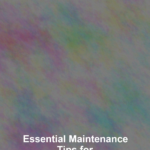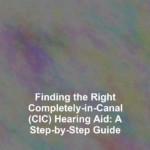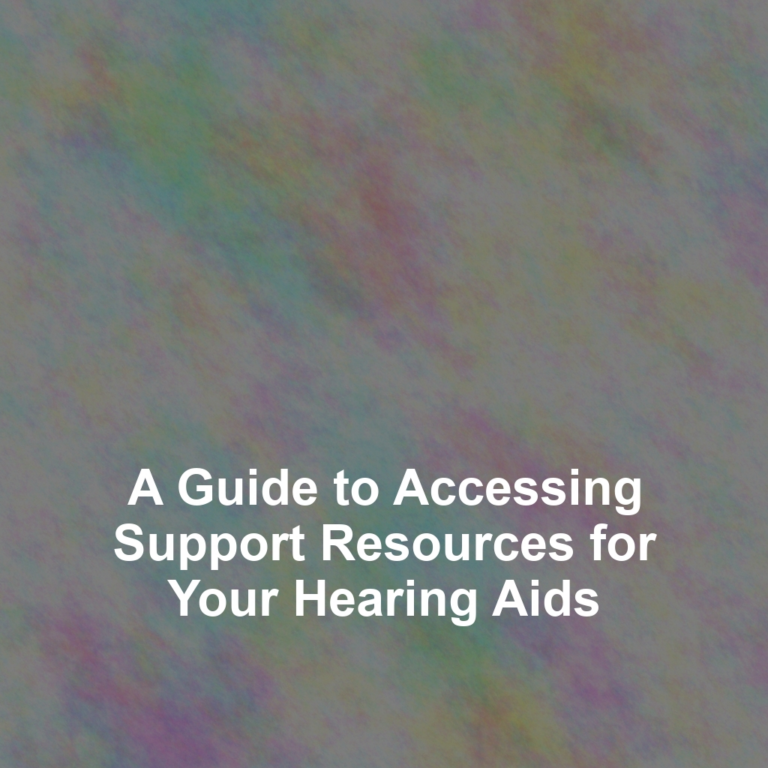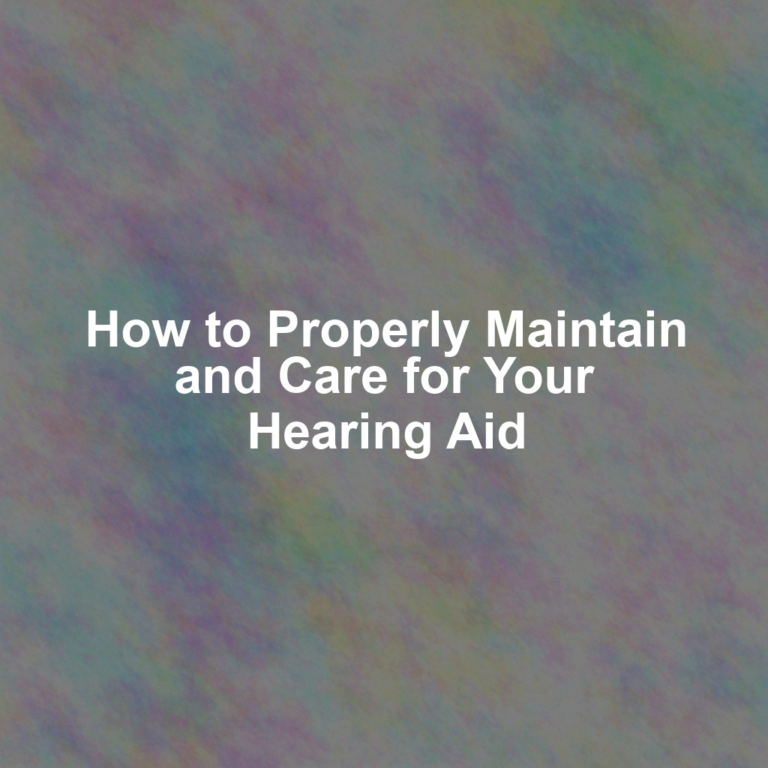When your hearing aids become silent partners in your daily life, itG??s essential to keep them in top condition to ensure they continue performing at their best.
As youG??ve invested in the subtle art of enhancing your auditory experience with Completely-in-Canal (CIC) hearing aids, understanding the nuances of their maintenance is paramount.
YouG??ll need to embrace a daily cleaning routine that prevents wax and debris from compromising the quality of sound.
Moreover, protecting them from moisture is not just recommended; itG??s crucial for their longevity.
And letG??s not forget about the heart of the deviceG??the batteryG??which requires your attention to keep the conversation going.
You might wonder what the best practices are to avoid common pitfalls and when to seek professional help for more complex issues.
Stick with us, and weG??ll explore the ins and outs of keeping your CIC hearing aids in pristine working order, ensuring that the world around you remains as vibrant and clear as it was meant to be.
Daily Cleaning Routine
To maintain your CIC hearing aids in top condition, establish a daily cleaning routine to remove earwax and debris. This not only ensures optimal performance but also extends the lifespan of your devices. YouG??ll need a soft, dry cloth and a special brush or wax pick, usually provided by your audiologist.
Start by wiping the exterior with the cloth to dislodge any visible dirt. Be gentle to avoid damaging the mic or receiver. Use the brush to clean the microphone ports and any crevices where wax tends to accumulate. If you notice a buildup of earwax, carefully scoop it out with the wax pick, making sure you donG??t push it deeper into the hearing aid.
Inspect the wax guard, which protects the speaker from wax. If itG??s clogged, replace it with a fresh one. Most CIC hearing aids come with a tool that simplifies this process, often combining a new wax guard and a tool to remove the old one.
Moisture Protection Strategies
While daily cleaning is crucial, protecting your CIC hearing aids from moisture is equally important to prevent damage and maintain functionality. Your hearing aids are exposed to humidity, sweat, and other forms of moisture every day, which can compromise their delicate internal components. To keep them safe, youG??ll need to adopt a few moisture protection strategies.
Firstly, make sure youG??re handling your hearing aids with dry hands. ItG??s a simple step, but it goes a long way in avoiding unnecessary moisture contact. When youG??re not wearing them, store your CIC devices in a dry, ventilated place. A dedicated hearing aid dehumidifier is an excellent investment; it removes accumulated moisture and extends the life of your hearing aids.
Be mindful of weather conditions, too. If youG??re caught in the rain or sweating more than usual, take a moment to dry off your hearing aids. Using a soft, dry cloth can help prevent moisture from seeping in.
Lastly, consider using a hearing aid sweatband or a water-resistant cover when youG??re active or in environments where moisture is inevitable. This proactive approach can save you from costly repairs or replacements down the line. Remember, a little effort in moisture protection can make a significant difference in the performance and longevity of your CIC hearing aids.
Battery Care and Replacement
Ensuring your CIC hearing aids function optimally involves regular battery maintenance and timely replacement. Like any high-performance device, your hearing aids rely on quality power sources to work effectively. YouG??ve got to keep an eye on their battery life to avoid unexpected interruptions.
HereG??s how you can take care of your hearing aidsG?? batteries:
-
Check Battery Life Regularly: DonG??t wait for the last minute. Most CIC hearing aids give a signal when the battery is low, but itG??s good practice to track how long your batteries last and plan replacements accordingly.
-
Store Batteries Properly: Keep your spare batteries at room temperature and away from metal objects. Extreme temperatures and contact with metal can reduce battery life or cause them to discharge.
-
Handle with Clean, Dry Hands: Before you replace the battery, make sure your hands are clean and dry. Dirt and moisture can damage the battery and the hearing aidG??s delicate internal components.
Troubleshooting Common Issues
Have you ever encountered a problem with your CIC hearing aids and werenG??t sure how to fix it? DonG??t worry; youG??re not alone. LetG??s troubleshoot some common issues to get your hearing aids back in action.
If thereG??s no sound, check the battery. Make sure itG??s properly inserted and that the battery door is closed. If the battery is dead, replace it. Sometimes, earwax or debris blocks the sound outlet. Carefully clean the area with a soft brush or a specialized tool provided by your audiologist.
Are you hearing feedback or a whistling sound? This often means the hearing aid isnG??t seated correctly in your ear. Remove it and reinsert it gently, ensuring a snug fit. Also, lower the volume to see if that resolves the issue.
If your CIC hearing aids sound weak or distorted, the microphone may be clogged. Wipe the surface with a dry, soft cloth. Avoid using water or other liquids, as they can damage the device.
Professional Care and Checkups
Even after addressing common issues with your CIC hearing aids, itG??s essential to schedule regular professional care and checkups to maintain optimal performance. Think of these visits as the high-level maintenance that keeps your hearing aids functioning smoothly. You wouldnG??t skip a car service, right? The same principle applies here.
At these checkups, your audiologist or hearing aid specialist will do more than you can at home. TheyG??ll assess both your hearing aids and your hearing. HereG??s what you can expect:
-
Thorough Cleaning: TheyG??ll meticulously clean areas that are hard for you to reach, removing any buildup that might affect the sound quality or function.
-
Expert Inspection: TheyG??ll check for any signs of wear and tear that could lead to bigger problems down the road. ItG??s better to catch issues early.
-
Fine-tuning: TheyG??ll adjust programming and settings to match any changes in your hearing and ensure youG??re getting the best possible experience.
Conclusion
Keep your CIC hearing aids in top shape by sticking to a daily cleaning routine, safeguarding them from moisture, and managing battery upkeep.
If you run into issues, donG??t hesitate to troubleshoot using your manufacturerG??s guidelines.
Remember, regular professional checkups are crucial for optimal performance.
Take care of your hearing aids, and theyG??ll take care of you, ensuring clear sound and seamless communication in your everyday life.










